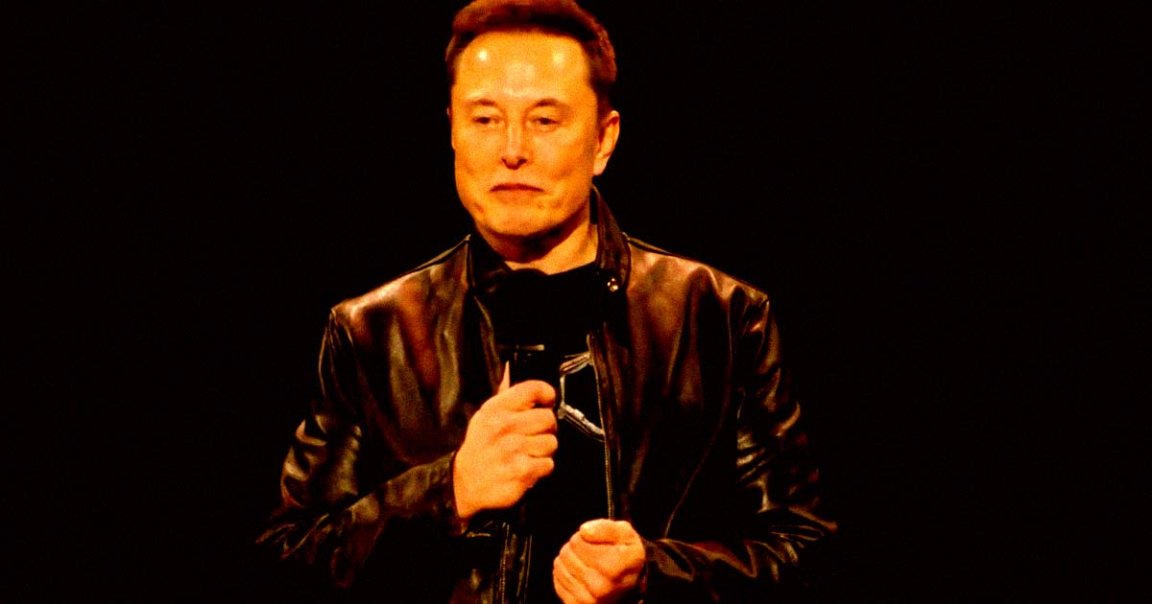
Market Misery
The Tesla Cybercab is here… but is it really?
Unveiled Thursday night at a much-hyped event, Tesla’s long-awaited robotaxi prototype — which will still take years to hit the streets — has seemingly failed to impress investors, as the automaker’s stock plunged by 9 percent in premarket trading on Friday.
After the markets opened, it evened out to a still sizeable 7.5 to 8.5 percent down, in what could be a sign of Elon Musk’s diminishing power to woo Wall Street with his usual grand promises.
Analysts have speculated that the reason for the stock drop is that Tesla’s timeline for rolling out its new vehicle is dubious. Musk, whose promises come cheap these days, could only assure that the Cybercab would “probably” enter production in 2026 or “before” 2027, per Bloomberg — which he hedged by admitting he tends to be “optimistic.”
Either way, that’s still a lengthy wait even if you’re willing to wave aside questions about Tesla’s ability to deliver a fully autonomous car. Moreover, it doesn’t provide investors with a short-term boon to cling onto.
“Timing of Cybercab is still two plus years away, too far for the incremental investor to put much weight into the opportunity and the timing asks existing investors to continue the waiting game,” Gene Munster, a partner at Deepwater Management, wrote on X.
Poor Showing
The lack of particulars may have also hurt Tesla’s prospects — something that analysts predicted would happen.
“The only specific was the $30,000 for a Cybercab,” Nancy Tengler, CEO of Laffer Tengler Investments and a Tesla investor, told Bloomberg. “The concepts were all grand. Is the idea super cool? Absolutely.”
That may have been more acceptable if Tesla shared any progress on what investors have most been looking forward to: the fabled, affordable $25,000 EV, which many see as essential for the automaker — in dire need of a rebound after going all-in on the expensive but low volume Cybertruck — to carve out more sales.
But no updates were offered. Instead, audiences were treated to a “robovan” prototype — a large, high-capacity vehicle that is essentially the opposite of the small, cheap car that everyone wanted.
“We also didn’t get any near-term updates on [Full Self-Driving] progress, or data reflecting improvement in the system,” noted Barclays analysts, as quoted by CNBC.
AI in the Sky
But it’s not just Musk’s robotaxi gamble that’s falling flat at the moment. Tesla also failed to make the case that it’s an AI company, Morgan Stanley analysts argued, per CNBC. This has implications for its self-driving tech as well, which hinges on Tesla’s advances in AI.
With all these huge unanswered questions with only vague assurances to meet them, perhaps it’s best to remember that Musk once promised that Tesla would have one million, fully-driverless robotaxis on the road by 2020.
“His vision is lovely, but somebody has to actualize it,” Ross Gerber, a Tesla shareholder and CEO of Gerber Kawasaki Wealth and Investment Management, told Reuters. “For now, for the next 24 months, Tesla has to sell EVs. Why aren’t we focused on that?”
More on Tesla: Tesla’s Hyped Robotaxi Event Was a Massive “Disappointment,” Investors Say